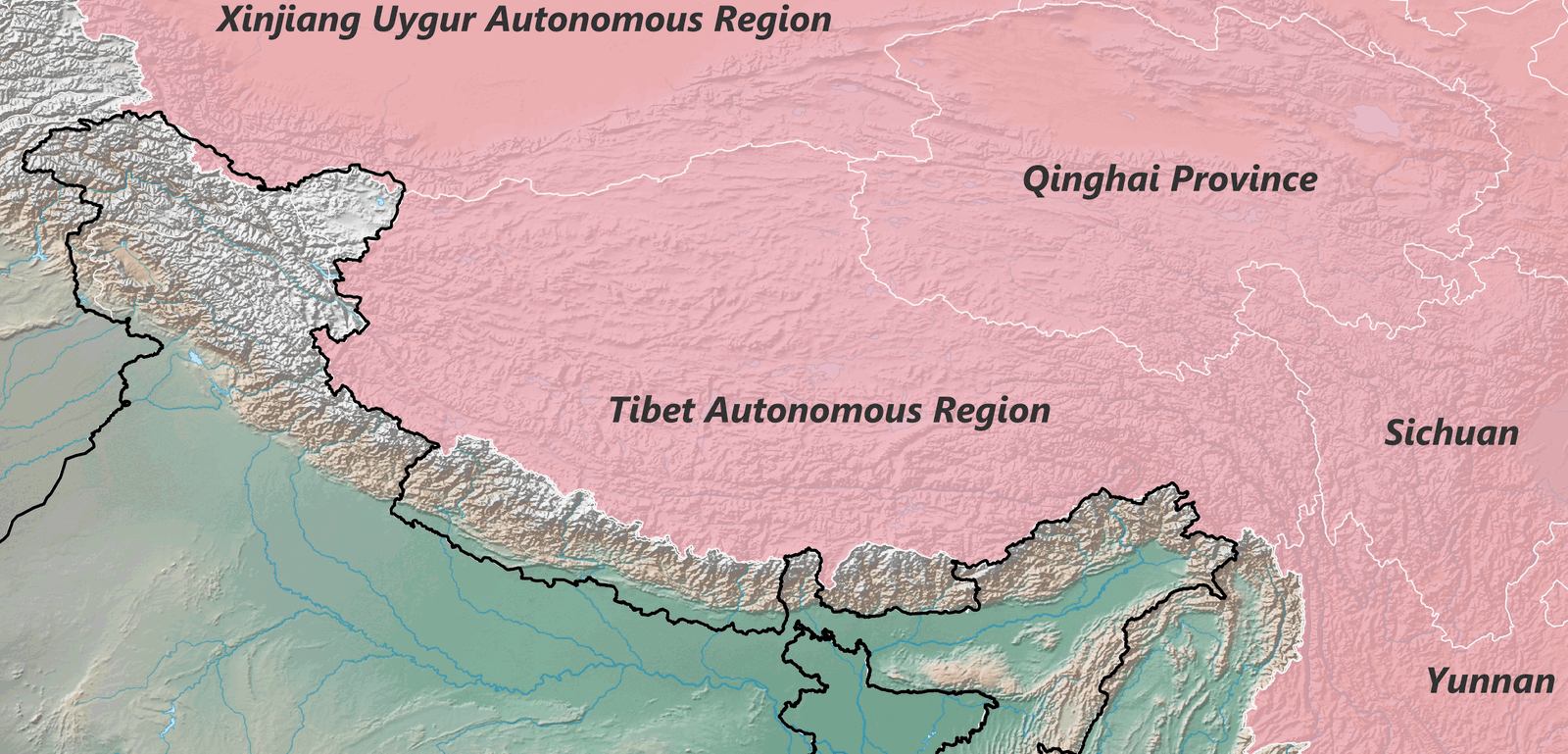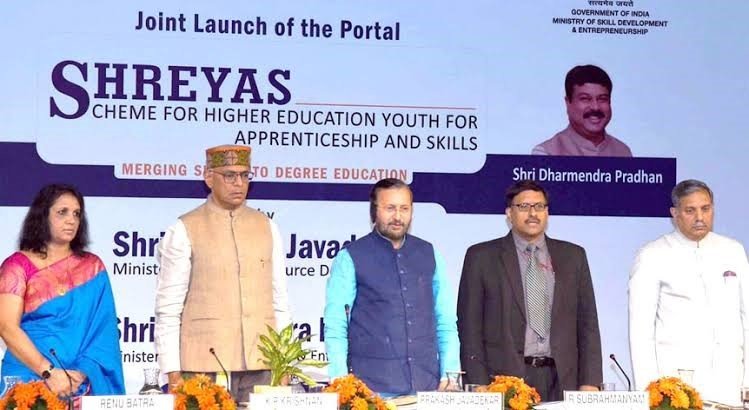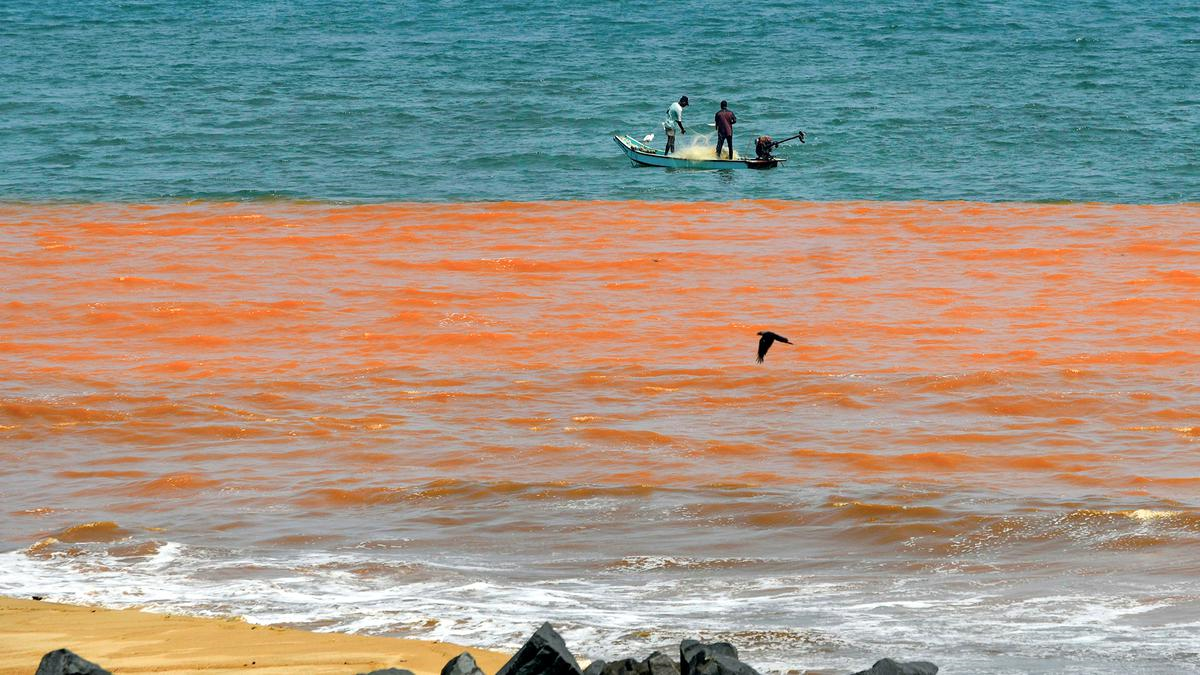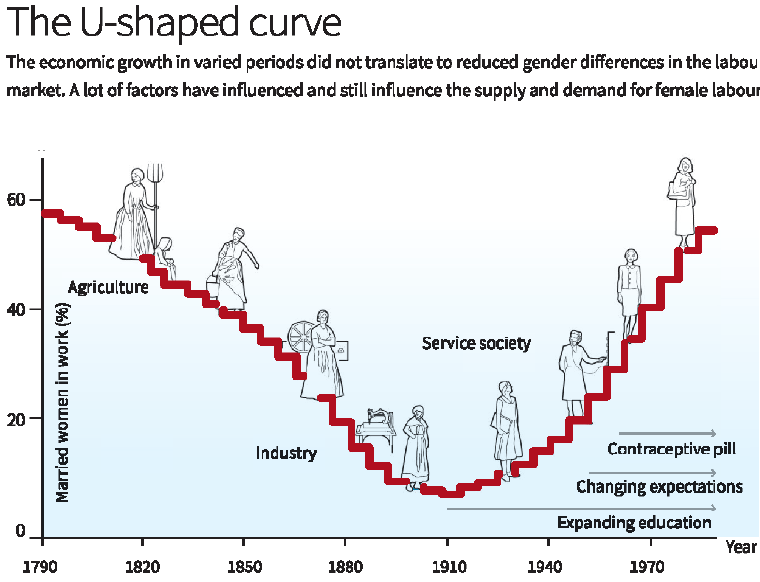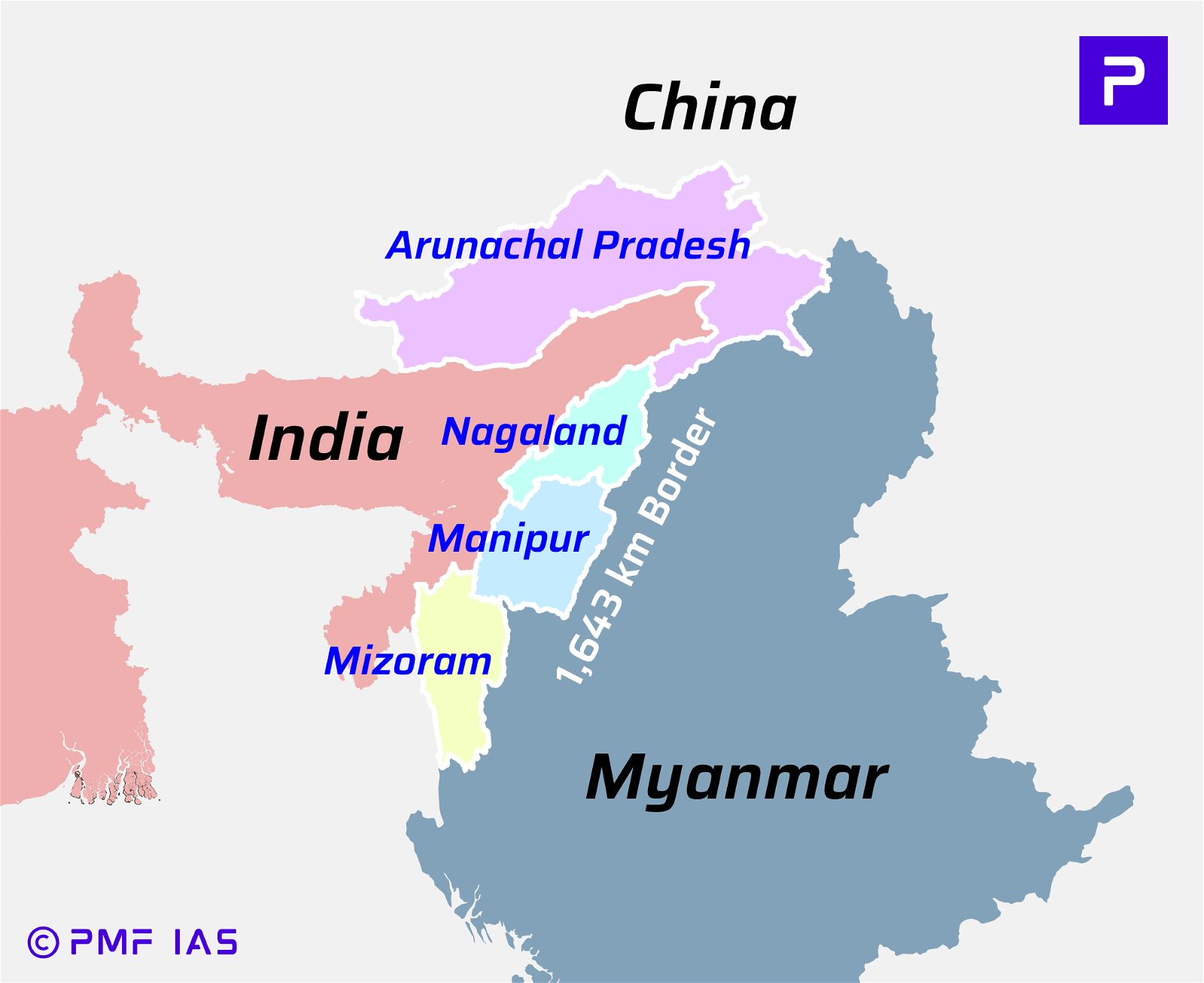
Current Affairs October 22-23, 2023: Wildlife Protection (Amendment) Act, 2022, Montreux Convention, Vienna Convention, Rafah Crossing
Subscribers of "Current Affairs" course can Download Daily Current Affairs in PDF/DOC
Subscribe to Never Miss an Important Update! Assured Discounts on New Products!
Must Join PMF IAS Telegram Channel & PMF IAS History Telegram Channel
{GS2 – IR – Laws} Montreux Convention
- Context (BI I IE): Under the Montreux Convention, Turkey will restrict Black Sea access to warships from non-bordering nations.
- The Montreux Convention is an agreement that governs Turkey’s Bosporus and Dardanelles Straits, critical maritime passages linking the Black and Mediterranean seas.
- The Convention was signed and became effective in 1936 Montreux, Switzerland.
- The Turkish straits are the only maritime passage between the Black and Mediterranean Sea.
- The United States is not a signatory to the Montreux Convention.


Bosporus Strait
Dardanelles Strait
|
Provision’s of the Montreux Convention
During Peacetime
- The convention guarantees “complete freedom” of passage for all civilian vessels during peace.
- In peacetime, military vessels are limited by condition of number, cargo, and weaponry, with specific provisions governing their mode of entry and duration of stay.
- Articles 10-18 provide the conditions for notification and other requirements as preconditions for passage through the Straits.
- Warships must provide advance notification to Turkey if they want to pass through the Strait.
During War Time
- In wartime, if Turkey is not involved in the conflict, warships of the nations at war may not pass through the Straits except when returning to their base (exception given in Article 19).
- When Turkey is at war or feels threatened by war, it may take any decision about the passage of warships as it sees fit.
|
{GS2 – IR – Laws} Vienna Convention
- Context (IE): Recently, India requested ‘parity’ with Canada, asking for a reduction in Canadian diplomats in India to match the number of Indian diplomats in Canada, which is around 20.
- India conveyed its plan to unilaterally remove diplomatic immunities for all but 21 Canadian diplomats and dependents in Delhi.
- Following this, the Canadian government announced it had recalled 41 diplomats posted in India and their family members.
- India invoked Article 11 of the Vienna Convention, which allows the host country to limit the size of the diplomatic mission based on what it considers reasonable and necessary.
|
Vienna Convention on Diplomatic Relations (1961)
- It is a UN treaty that outlines how countries should treat each other’s diplomats.
- Currently, 193 countries have ratified the convention, making it legally binding.
- India ratified it through the Diplomatic Relations (Vienna Convention) Act 1972.
Diplomatic Immunity
- Diplomatic immunity gives diplomats protection from certain laws and taxes in their host country, ensuring they can work without fear or intimidation.
- According to the Convention, diplomats cannot be arrested or detained.
- The host country must treat the diplomatic agent with respect and prevent any harm to their person, freedom, or dignity.
Recalling diplomats under the Vienna Convention
- The convention allows the host country to declare a diplomat unwelcome without explanation.
- If a diplomat is declared unwelcome, the sending country must either recall them or terminate their duties at the mission.
- If the sending country doesn’t comply within a reasonable time, the host country can refuse to recognize the diplomat as a mission member.
{GS2 – Polity – Bodies – GoI Agencies} Operation Chakra II
- Context (TOI I TH): The Central Bureau of Investigation (CBI) has launched Operation Chakra-II to fight against transnational organised cyber-enabled financial crimes in India.
- For this, India’s federal agency has partnered with Microsoft and Amazon and with national and international agencies to combat and dismantle the infrastructure of illegal call centres.
Central Bureau of Investigation (CBI)
- CBI is a non-constitutional, non-statutory body that derives power to investigate from the Delhi Special Police Establishment Act, 1946 DSPE Act, 1946.
- It is the nodal Indian agency that coordinates investigations on behalf of Interpol Member countries.
- It functions under Ministry of Personnel, Pension and Public Grievances.
Appointment of CBI Director
- Before the Lokpal Act was legislated, the CBI director was appointed by the DSPE Act.
- Now, the Lokpal Act governs the appointment of the CBI director.
- The director of CBI has been provided security of two-year tenure by the CVC Act, 2003.
- In Prakash Singh’s case (2019), the SC said, “No officer with less than six months to retirement should be appointed as police chief”.
- GoI appoints the director based on the recommendation of a search committee comprising the
- Prime Minister as the chairperson,
- Chief Justice of India (or supreme court judge) and
- Leader of the Opposition.
Directorate of Enforcement (ED) vs Central Bureau of Investigation (CBI)
| Aspect | ED | CBI |
| Initiation of Case | Can take cognisance of offences across the country without the state government’s consent. | Requires state government’s request or court order to investigate cases |
| Admissibility of a Statement | A statement recorded before an investigating officer is admissible in court as evidence. | A statement recorded before an investigating officer is not admissible as evidence in court. |
| Scope of Investigation | Focused on money laundering and related offences | A broad spectrum of criminal investigations, including corruption, economic offences, and other crimes. |
| Reporting Authority | Reports to the Department of Revenue, Ministry of Finance. | Reports to the Department of Personnel and Training, Ministry of Personnel, Public Grievances, and Pensions. |
For more info on CBI AND ED: {GS2 – Polity – Bodies – GoI Agencies } CBI and ED PMF IAS JULY CA
{GS2 – Polity – IC – Judiciary} Master of the Roster
- Context (SCROLL): The SC of Pakistan upheld a law diluting the master of the roster powers of the Chief Justice of Pakistan. Before this law in Pakistan, the “master of roster” power resided solely in the country’s Chief Justice.
- The master of the roster refers to the power to constitute benches & assign specific cases to them.
Chief Justices’ absolute power over bench assignment
- As administrator of the court’s judges’ roster, CJI assigns a case to a particular bench of the court or reassigns it from one bench to another.
- Such privileges of CJI have certain issues and often create controversy. These issues are:
- Unchecked Power: CJ has discretionary and unchecked power over case allocation.
- No Judicial Review: The administrative decisions of the CJ are not subject to judicial review.
- No Accountability: The CJI’s discretion in such matters is absolute. They do not have to reveal the reasons for such assignments and reassignments.
- No Transparency: There are no guidelines on how chief justices must exercise this power.
|
- In 2018, Advocate Shanti Bhushan moved the SC, requesting the framing of a more rational and transparent system of listing and re-allocation of matters to benches in the court.
- However, the SC dismissed the petition.
Way forward
- The SC of India is resistant to the reforms directed by the legislature. Hence, even if the government makes laws on CJI’s absolute power, it is difficult to sustain.
- The SC should frame guidelines on how chief justices must exercise this power. The guidelines must uphold transparency and accountability.
{GS2 – Polity – IC – Parliament} Mahua Moitra Case
- Context (TH): A BJP MP has accused Mahua Moitra of accepting money from a businessman to ask questions in Parliament.
- The Lok Sabha Speaker had previously referred a Bribe-For-Query Complaint against MP Mahua Moitra to the Ethics Committee of the Lower House.
- Darshan Hiranandani, CEO of the Hiranandani Group, has submitted a “sworn affidavit” to the Lok Sabha Ethics Committee, making several allegations against MP Mahua Moitra and others.
- Moitra has rejected the contents of what she referred to as Hiranandani’s “approver affidavit”.
- She pointed out that the affidavit was on a “white piece of paper with no letterhead”.
Sworn Affidavit
- An affidavit is a “sworn statement if a person makes before a notary or officer of the court outside of the court asserting that certain facts are true to the best of that person’s knowledge”.
- Section 3(3) of India’s General Clauses Act, 1897, defines an “affidavit” as an “affirmation and declaration in the case of persons by law allowed to affirm or declare instead of swearing”.
Can anyone make an affidavit at any time?
- SC in the Chhotan Prasad Singh case stated that according to the Oaths Act of 1969, any court or person authorised by law or the party’s agreement can administer oaths and affirmations.
- The court observed that only those magistrates acting in their duty could administer oaths and affirmations to the persons making the affidavits.
- That is, they can only do this when performing their legal duties or given legal powers by the law.
- Failure to meet this requirement would render the affidavits “inadmissible” evidence.
- Affidavits are routinely made in the course of legal proceedings or trials. They can also be made for other purposes, such as registering one’s property or to declaring one’s legal heir(s).
What is an “approver affidavit”?
- There is no legal definition of an “approver affidavit”, the expression used by Moitra.
- An “approver” is a person directly or indirectly concerned, involved or privy to an offence.
- An accomplice or an accused can later turn approver, siding with the prosecution in return for a lesser sentence or pardon.
- Section 306 of the CrPC has provisions for tender of pardon for an accomplice in a crime “on condition of his making a full and true disclosure of the whole of the circumstances of the offence”.
Ethical Values Involved in the Mahua Moitra Case
- Integrity: This is at the core of the allegations. If true, the claim that Moitra allegedly received cash and gifts in exchange for asking questions in Parliament would be a breach of integrity.
- Transparency: If she did receive gifts for asking questions, it means she was not being transparent about the motive of the question she asked in parliament
- Accountability: As a public servant, Moitra is accountable to the people she represents. If the allegations are true, it would mean she failed to uphold this responsibility.
- Honesty: Moitra’s denial of all allegations and questioning the authenticity of the affidavit brings up the value of honesty.
- Public Trust: Such allegations can erode public trust in the parliamentary system and the politicians who are part of it.
- Setting Precedents: The allegations can harm the parliament’s image. If not addressed, it could set a dangerous precedent for other politicians.
For more info on Ethics committee: {GS2 – Polity – IC – Parliament} Ethics Committee (19 Oct)
{GS2 – Polity – IC – Parliament} Privileges to MPs and MLAs
- Context (LiveLaw): A constitution bench of the SC reserved its verdict on whether MPs and MLAs could claim immunity under Articles 105(2) and 194(2) of IC for receiving a bribe for voting or speaking in the legislature.
- Under Article 105, MPs enjoy certain privileges so that they can perform their parliamentary duties without any hindrance.
- Under Article 105(2), MPs are protected from legal action for what they say or vote in Parliament.
- The purpose of conferring immunity is to encourage free speech and an unrestrained dialogue.
- In PV Narasimha Rao vs State (1998), the SC held that MPs and MLAs are immune from prosecution in bribery cases about any speech or vote in the House granted by Articles 105(2) and 194(2).
- After this judgment, MPs could receive bribes to raise any questions or vote in Parliament without any consequence of criminal prosecution.
- Hence, even if the MP takes the bribe, he cannot be prosecuted in a court of law.
- The judgment translated the privilege of an MP to vote or speak in Parliament to absolute freedom of speech and expression.
- The immunity granted to legislators ceases when they accept a bribe and do not make good on the promise. That is, if a legislator accepts a bribe for a vote and fails to honour the agreement, they cannot claim legal immunity. On the contrary, if the promise is completed, immunity stays intact.
|
Reversal of PV Narasimha Rao judgment
- If SC reverses PV Narasimha Rao judgment:
- Constitutionally protected bribery may come to an end.
- The RS election process will move away from cash-for-votes and corruption.
- It would bring the judgment more in line with the Prevention of Corruption Act as well as standard ethical practices elsewhere in the world.
Article 105 of IC
|
{GS3 – Envi – Conservation} First District to Declare Official Species
- Context (TH | DH): Kasaragod district has become the first district in India to officially designate its own tree, flower and bird species.

Kanjiram (Strychnos nux-vomica Linn): Kasargod’s Official Tree
- Kanjiram is a species deriving its name from ‘kasara’, meaning wormwood, from which the name of the district originates.
- It is known for being the natural source of the extremely poisonous compound strychnine.
- Distribution: It is a medium-sized deciduous tree native to India and Southeast Asia.
- Habitat: Moist deciduous forests.
- Monkeys and birds, such as the gray langur and hornbill species, eat the toxic fruit.
- Uses: It is used in traditional medicine for treating various conditions (like paralysis, epilepsy, etc).
- Threats: Habitat loss, overexploitation, red sand mining, and climate change.

Source: India Biodiversity Portal
Malabar River Lily (Crinum malabaricum): Kasargod’s Official Flower
- Malabar river lily is endemic to four streams in Kasaragod and Kannur districts in Kerala.
- It is an important part of the river ecosystem, providing shelter for fish and other aquatic life.
- It is localley called Periya Polathali.
- Habitat: It grows in a seasonal running stream.
- Threats: Habitat loss, dam construction, sand mining, pollution, and overcollection.
- Conservation Status: IUCN: CR

Source: The Mohamed bin Zayed Species Conservation Fund
White-Bellied Sea-eagle (Haliaeetus leucogaster): Kasargod’s Official Bird
- White-bellied sea eagle (or white-breasted sea eagle) is a large diurnal bird of prey.
- In Kasargod, it is locally known as Beeman Aamma and Palappoovan Aamma.
- Distribution: It is resident of India, Sri Lanka, Southeast Asia, and Australia.
- Habitat: It inhabits inshore seas, islands, coasts, mangroves, estuaries and terrestrial wetlands.
- Threats: Habitat loss, hunting, pollution, and natural disasters.
- Conservation Status: IUCN: LC | CITES: Appendix II | WPA: Schedule I

Cantor’s Giant Softshell Turtle (Pelochelys cantorii) : Kasargod’s Official District Species
- Cantor’s giant softshell turtle (also called Asian giant softshell turtle and frog-faced softshell turtle) is a freshwater turtle which rarely comes out of water.
- In Kasargod, it is locally known as Vellavayaran Kadal Paranthu.
- Distribution: It is resident of India, Bangladesh, and Southeast Asia.
- Habitat: It inhabits lowland rivers, lakes, reservoirs, and estuarine areas including mangrove channels and coastal mudflats near river mouths.
- Threats: Habitat loss, overfishing, and pollution.
- It relies on estuaries for laying eggs, making its conservation particularly critical.
- Conservation Status: IUCN: CR | CITES: Appendix II | WPA: Schedule I

{GS3 – Envi – Laws} Wildlife Protection (Amendment) Act, 2022
- Context (TH | PRS | DTE | TQ): Many ecologists are criticising the Wildlife Protection (Amendment) Act, 2022 (WPA 2022), which amends the Wildlife Protection Act, 1972 (WPA 1972)
WPA 1972 vs. WPA 2022
Aspects of ‘Conservation’ and ‘Management’ of Wild Life
WPA 1972
- The1972 Act provided for the protection of wild animals, birds, and plants to ensure the nation’s ecological and environmental security.
WPA 2022
- The words ‘protection of wild animals, birds and plants’ have been substituted with ‘protection, conservation, and management of wildlife’.
Invasive Alien Species
WPA 1972
- The1972 Act did not have any provision for invasive alien species.
WPA 2022
- The 2022 Act defines invasive alien species as non-native animals or plants in India that could harm wildlife or its habitat through their introduction or spread.
- It empowers the Central Government to regulate or prohibit the import, trade, possession, or proliferation of invasive alien species
Standing Committee of Board
- ‘Board’ here refers to the State Board for Wild Life.
- The Board may form a Standing Committee to exercise delegated powers and duties.
Non-prohibited Activties in a Sanctuary
WPA 1972
- No one can harm or take wildlife or alter their habitat in a sanctuary or change the flow of water into or outside the sanctuary without a permit from the Chief Wildlife Warden.
- Permits can be issued only for local residents‘ personal bona fide needs, not for commercial use.
- Non prohibited activities: Grazing or movement of livestock
WPA 2022
- The 2022 Act increased non-prohibited activities in a sanctuary. Now, it includes:
- Grazing or movement of livestock
- Hunting of wild animals without violating the conditions of the permit
- Exercise of land rights whose continuance is permitted within the sanctuary
- Bona fide use of drinking and household water by local communities
Wild Animals, etc., to be Government Property
WPA 1972
- Hunted wild animals, their parts, and hunting equipment and wild animals kept or bred in captivity are the property of the State Government.
- If hunted in a National Park or Sanctuary declared by the GoI, they belong to the GoI.
WPA 2022
- When the government property is a live animal and it cannot be released to its natural habitat, the State Government must house and care for it in a recognized zoo or rescue centre.
- Hunted wild animal part (including meat) must be disposed of by the concerned State Government or GoI as prescribed by the GoI. Such disposal shall not include any commercial sale.
Regulation of Transfer of Animal
WPA 1972
- A person with a certificate of ownership for a captive animal or an animal article cannot sell or offer them for commercial purposes.
- Exemptions:
- Tail feather of peacock and articles made from it
- Transfer of captive animals between recognised zoos or amongst zoos and public museums
WPA 2022
- The 2022 Act allows people with valid certificates of ownership to transfer or transport captive elephants for religious or other purposes, subject to GoI terms and conditions.
Criticism
Dilution of elephant protection
- The provision for the transfer of elephants for religious and other purposes has legalised the misuse of elephants. This ‘other purpose’ term is broad and vague.
- Now, elephants can be acquired by any malicious individual or institution.
- Though the provision prohibiting the commercial trade of elephants remains in the WPA, this new provision dilutes the former.
Regulation of International Trade in Endangered Species of Wild Fauna and Flora as per CITES (Convention on International Trade in Endangered Species of Wild Fauna and Flora)
WPA 1972
- The1972 Act did not have any provision for obligations under CITES.
WPA 2022
- The 2022 Act provides for proper implementation of the provisions of the CITES in India.
- It provides for the GoI to designate a:
- Management Authority (MA): Grants export or import permits for trade of specimen
- Scientific Authority: Provides advice on how trade affects the survival of traded species
- Traders of scheduled specimens must report details of transactions to the Management Authority.
- As per CITES, the Management Authority can use an identification mark for specimens.
- The Act forbids altering or removing a specimen’s identification mark.
- Possessors of live scheduled animals must obtain a registration certificate from the MA.
- Breeders and artificial propagators of Appendix I Schedule IV species must apply for a license.
Criticism
No clear connection between endangerment and conservation
- The1972 Act intended to regulate the use of various species (including hunting), restrict trade, and police the trafficking of species.
- The 2022 Act has gone a step further by aligning itself with CITES, and including the CITES appendices.
- But nowhere in the Act, there is a clear connection between endangerment and conservation.
Rationalisation (Amendment) of Schedules
WPA 1972
- The 1972 Act has six schedules.
| Schedules | Protected Species | Protection |
| Schedule I | Critically endangered animals | Hunting and trade are prohibited throughout India |
| Schedule II | Less endangered than Schedule I | Hunting and trade are prohibited throughout India |
| Schedule III | Big game species | Hunting is prohibited but penalties are less severe |
| Schedule IV | Small game species | Hunting is prohibited but penalties are less severe |
| Schedule V | Vermin | Hunting without restriction |
| Schedule VI | Plants | Prohibited from cultivation and planting |
|
||
WPA 2022
- The 2022 Act reduces the number of schedules to four by:
- Reduced the schedules for specially protected animals to two (one for greater protection level)
- Removed the schedule for vermin species
- Inserts a new schedule for specimens listed in the Appendices under CITES
Criticism
No rationale behind listing of species in schedules
- The main motive scheduling of species is prioritisation for conservation.
- But the new Act has placed numerous species under the same schedule without any justification.
- For e.g., same level of protection is offered to tigers and jackals, to the great Indian bustard and typical barn owls, to the king cobra and rat snakes.
- All these will create confusion while allocating resources for conservation.
Help propagate invasive species
- The 2022 Act has placed the species in schedules without considering their role in different ecological set up. This may help the propagation of invasive species.
- For e.g, the new Act has placed the spotted deer (chital) in Schedule I. Common throughout India, these are invasive in the Andaman Islands. But now, they cannot be legally culled or removed.
Control of Sanctuaries
WPA 1972
- The1972 Act entrusts the Chief Wild Life Warden to control, manage and maintain all sanctuaries in a state. The Chief Wild Life Warden is appointed by the state government.
WPA 2022
- The 2022 Act states that Chief Wardens must act in accordance with sanctuary management plans.
- These plans will be developed following GoI’s guidelines and Chief Warden approval.
- Sanctuary management plans in special areas must be prepared after consulting the Gram Sabha.
|
Conservation Reserves
WPA 1972
- The1972 Act empowered state governments to declare adjacent areas of national parks and sanctuaries as conservation reserves for protecting flora and fauna and their habitat.
WPA 2022
- The 2022 Act empowers the GoI to notify a conservation reserve.
Surrender of Captive Animals
WPA 1972
- The1972 Act had no provision for surrender of captive animals.
WPA 2022
- The 2022 Act provides that anyone can voluntarily surrender captive animals or animal products to the Chief Wild Life Warden.
- No compensation will be paid to the person for surrendering such items.
- The surrendered items become the property of the state government.
Other Issues with WPA 2022
Impact on people
- Various Schedule I species pose enormous physical, mental, and economic harm to people. For e.g., Crocodiles in the Andamans, leopards in certain pockets, and elephants in many places.
- The WPA 2022 serves the elite conservationists’ view that people should learn to ‘co-exist’.
- The new Act elevates wild pigs and nilgai to Schedule I, which means the States will now not be allowed to do limited culling of problematic animals. This shows utter disregard for the plight of marginal cultivators.
Research
- The paperwork involved in getting permits for research is tedious and time-consuming.
- The listing of such a large number of species could have debilitating effects on research.
- Environmental NGOs will have a more challenging time getting permits for research and conservation. This will adversely impact the conservation of the species.
{GS3 – IE – RBI} Dollar–Rupee Swap Agreement
- Context (LM): In April 2022, the RBI conducted a Dollar/Rupee (USD/INR) sell-buy swap auction for $ 5 billion, with an agreement to buy back those dollars at maturity, which is October 23.
- Dollar-Rupee Swap Auction: It is a forex tool employed by central banks to exchange their own currency for another or vice versa.
- In a Dollar-Rupee buy/sell swap, the RBI buys US dollars with Indian Rupees and commits to selling the dollars later.
Why do Central Banks Engage in it?
- Managing surplus liquidity in the financial system to control inflation.
- Alternative to conventional measures like increasing the repo rate or cash reserve ratio, which can negatively impact the economy.
- Central banks consider forex auctions a longer-term liquidity adjustment tool in response to undersubscribed variable rate reverse repo auctions (VRRR).
- Surplus generated from these swaps can supplement RBI’s dividend payments to the government for the previous fiscal year.
Impact of Dollar-Rupee Swap Auction
- On the bond market, it provides central banks with a tool to purchase bonds when needed, thus controlling bond yields.
- Helps stabilize INR amidst global tensions and rising oil prices, curbing the Rupee’s depreciation.
{Prelims – PIN World – Asia – Middle East} Rafah Crossing
- Context (TH): Egypt has agreed to reopen the Rafah Crossing.
- Rafah Crossing is a border crossing between the southern end of the Gaza Strip and Egypt.
- It is the only land entry point to Gaza not controlled by Israel.
- Israel & Egypt have imposed restrictions on the movement of people and goods to and from Gaza.
- Hence, Rafah Crossing is a vital area to provide humanitarian support to the people in Gaza.

Other Border Crossings
- Erez Crossing (Beit Hanoun Crossing): It is a border crossing between the northern end of Gaza Strip and Israel.
- Kerem Shalom Crossing: It is a border crossing between the southern end of Gaza Strip and Israel. It is located on the Gaza Strip-Israel-Egypt border (tri-border).
Why was Access Across Rafah Restricted?
- Security Concerns: Egypt is concerned about security issues near the border with Gaza, particularly in north-eastern Sinai, where it faced an Islamist insurgency.
- Hamas Controlling Gaza: Since Hamas took control of Gaza in 2007, Egypt has cooperated with Israel in enforcing a blockade of the enclave.
- Past Incidents: In the past, there were incidents where tens of thousands of Palestinians crossed into Sinai after Hamas breached border fortifications.
Sinai Peninsula
Boundaries of the Sinai Peninsula
|





![PMF IAS Environment for UPSC 2022-23 [paperback] PMF IAS [Nov 30, 2021]…](https://pmfias.b-cdn.net/wp-content/uploads/2024/04/pmfiasenvironmentforupsc2022-23paperbackpmfiasnov302021.jpg)
